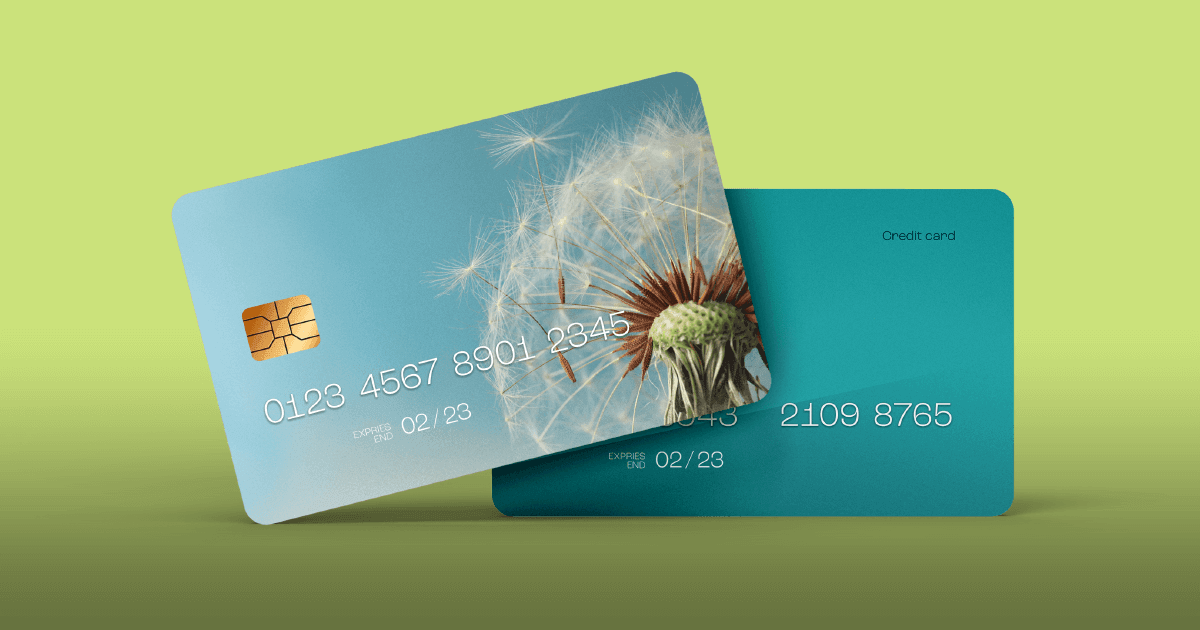In this article
What to do if you can’t get a credit card
If you’ve been turned down for a credit card, it might be for one of these reasons. But the good news is you can do something about it.

In this article
There are about 60 million credit cards in circulation in the UK, so applying for one isn’t uncommon. There are requirements you need to meet to be accepted, so if you’ve been turned down, it could be because:
You’re under 21
To get a credit card, you need to be at least 18 years old. But lenders also want to know you’re good at managing money and, at 21, you might not have built up a strong credit history just yet.
If you don’t have other lines of credit (like a phone contract or maybe car finance), then it’s difficult to prove that you can responsibly pay back the money you borrow. It can feel like a catch-22 – the good news is that some lenders specialise in credit builder cards, which can be a great option if you’re looking for your first card.
Next step: Start building your credit score with ClearScore
Your credit history is too thin, or you just don’t have one
If you’re just starting out in the world of credit, that’s OK. There are things you can do to build your credit history.
It’s important to have a good track record – or history – of paying back borrowed money on time and in full. Lenders might be reluctant to give someone a credit card if they can’t be sure they’ll be able to make repayments.
Comparing your options before you apply is a good way to be sure what type of credit card could work for you.
Learn more: What to do if you have no credit history
You’ve missed some payments recently
A missed payment – no matter the amount – can negatively affect your credit score by as many as 100 points. The impact will fade over time but a large drop in your credit score can impact the types of offers you’re seeing and your chances of being accepted for a new line of credit. It’s a good idea to let your credit score go back up before applying for a card otherwise, you might only see offers with high interest rates and low limits.
You recently filed for bankruptcy or have CCJs
You could still get a credit card after filing for bankruptcy, but the offers you see might be limited. They’ll be based on your credit score and subject to the lenders’ approval requirements. It’s the same with CCJs (County Court Judgements).
If you need a credit card, it could be a good idea to start looking at lenders who specialise in helping people with bad credit.
You already owe a lot on your credit cards and loans
If your credit card utilisation is high, or you already have multiple or large loans, lenders might not want to offer you more money. That’s because it can look like you’re looking for lots of credit – which ultimately seems like you can’t borrow responsibly.
Ideally, you’ll want to keep your monthly credit utilisation below 30% because it shows lenders you can sensibly borrow money and repay it. And you should keep about six months between applications for credit so your credit score doesn’t take another hit (which should be short-term if you borrow mindfully.
Learn more: What's the ideal level of credit utilisation
You have no or low income, or an unstable work history
To qualify for a credit card, you usually need to be regularly earning a certain amount of money. But if you have a low or no income, or an unstable work history, you could still get a credit card. Lenders tend to consider several factors when deciding who to lend to, so you could look for a credit card for people with bad credit.
You’re not on the electoral roll
If you’re not registered to vote, then your name and address won’t be on the electoral roll. And if you then apply for a credit card, it might be more difficult for lenders to confirm your identity, and they might turn down your application.
There are mistakes on your application form
Taking the time to double-check your information means avoiding problems caused by misspelt names or addresses.
You’re financially linked to someone with a bad credit history
Whilst your credit score won’t be affected, borrowing money with someone can affect your chances of getting credit. When you apply for a credit card, lenders might look at the credit history of people named on your report and if you’re linked to someone with a bad credit history, it may be more difficult for you to get credit.
Making sure you, and the person you borrow money with, both have a good credit history before you apply, can help you protect yourself.
There’s a fraud alert on your credit report
If you’ve been a victim of identity theft and there’s a fraud alert on your credit report, it might take longer to be approved for credit. That’s just because the alert means lenders need to take a few extra steps to confirm your identity.
Your credit score is key to the types of offers you’ll see – a better score could mean better offers. Taking steps like making payments on time and in full and checking your report for errors, steadily boosts your score – so you can apply for a credit card when you’re in the best position.
Learn more: How to improve your credit score
Your credit history and the lender’s criteria will affect how long it will take for you to be approved. But, if you are approved, it shouldn’t take more than two weeks for you to get your credit card in the post.
Then you’ll be able to use it as soon as you activate it.
There isn’t a specific card or lender that can ensure you get approved. That’s because your chances of approval are based on the lender’s criteria and all the things that make up your credit history.
There are several types of credit cards and understanding the difference can help you pick the card that’s best for you.
You can find out if you’re pre-approved for a credit card while comparing them*. Known as your ‘eligibility’, a soft search can be made against your credit report and your chances of approval shown as a percentage.
Knowing your pre-approval chances can help you narrow down your options and apply for the cards you’re most likely to be accepted for.
A rejected credit card application shouldn’t be the reason your score is impacted. If you see a drop in your score after your application was turned down, it’s likely to be because the lender made a hard search against your report as part of the process.
The impact of a hard search is usually small and short-term. But, if you’ve applied for several types of credit over a short period of time, it might be worth waiting for about six months before applying again. That gives your credit score a chance to rise again – so you see the best offers possible.
If you want to appeal or dispute a credit card rejection, you’ll need to contact the lender.
Next step: See if you’re pre-approved and start comparing credit cards with ClearScore.
*Pre-approval doesn’t always guarantee acceptance, and is subject to lenders’ checks of your credit status.
Helen's our resident Digital Copywriter. She makes personal finance easier to understand so you can be confident about your credit choices.
